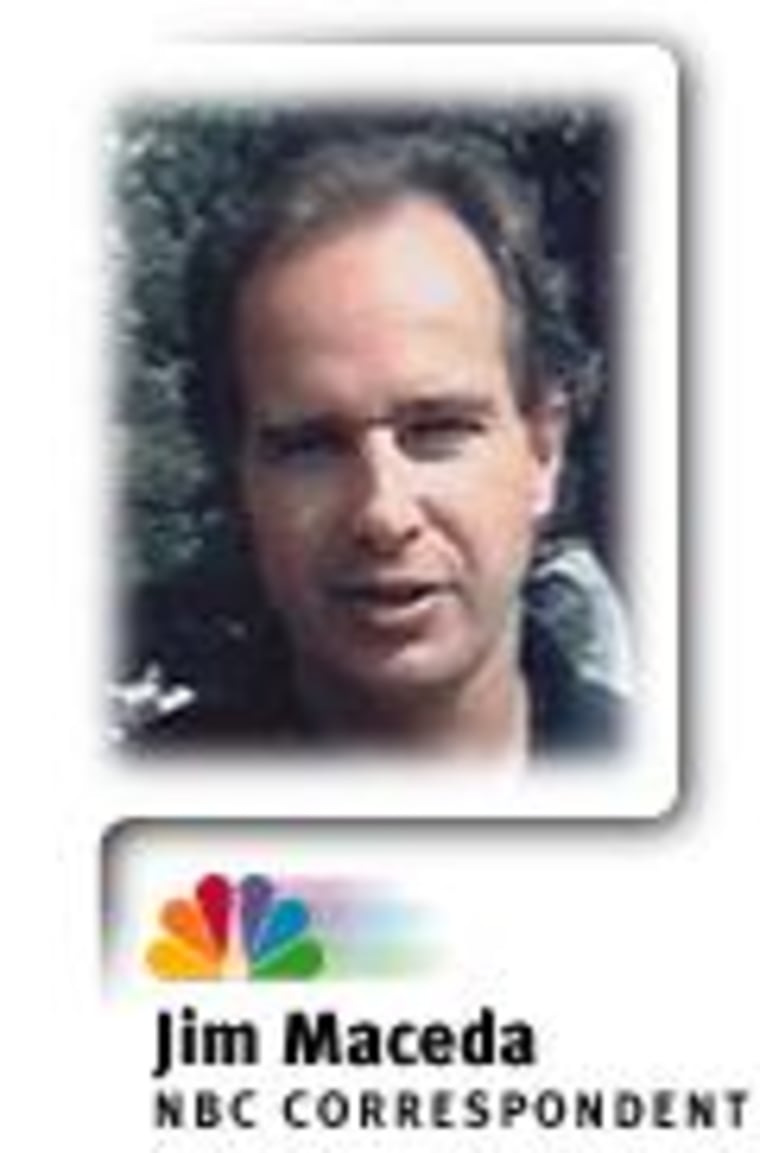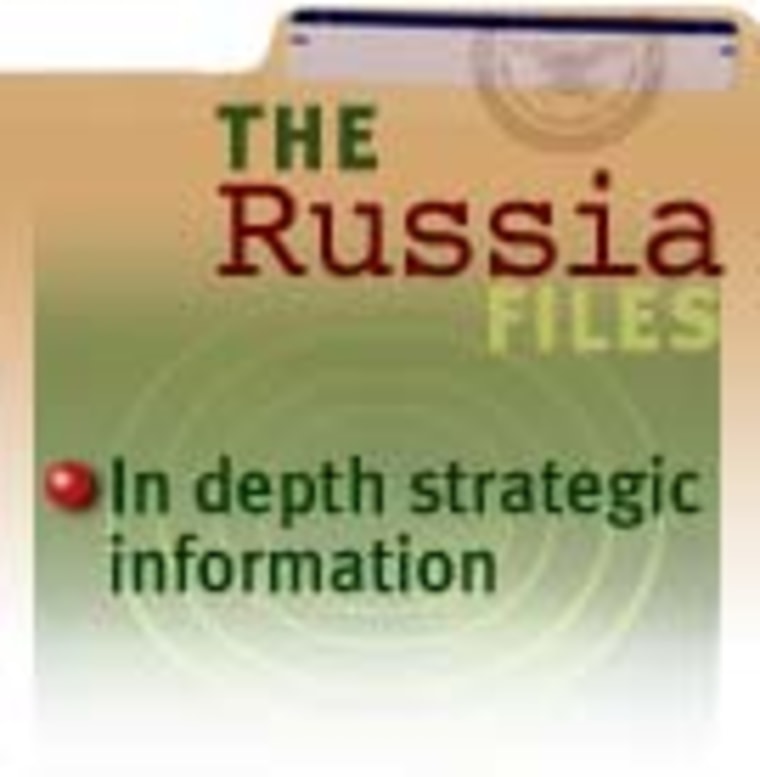President Bush famously observed on first meeting President Vladimir Putin that the Russian leader was a straight talker whom he could trust because he was “able to get a sense of his soul.”

THE ENCOUNTER in Slovenia in July 2001 laid the groundwork for a relationship that has endured despite a very public split over the Iraq war.
And it may account for why Putin — and not other outspoken opponents such as France’s President Jacques Chirac or Germany’s Gerhard Schroeder, both of whom are in New York for the U.N. meeting — is heading to the U.S. presidential retreat at Camp David, Md., for meetings with Bush on Friday and Saturday.
The ability of the former KGB operative to win the respect of the former Texas governor — two men who on paper have little in common — seems to have as much to do with Putin’s personality as with his leadership of Russia.
It’s not always a quality that is evident in public. On television, Putin can be stiff and awkward. But when the TV lights are turned off, the Russian leader can turn on the charm.
Last weekend, the Western media got a taste of the other Putin when he hosted a pre-summit chat at his sprawling residence outside Moscow.
COMMAND OF ISSUES
The briefing got off to an inauspicious beginning when the media were forced to wait for 90 minutes while Putin headed off for an unscheduled meeting with the United Russia party, a centrist group that has backed the president during his four years in power.
The delay was eased by a snack of tea and pastries in the presidential reception room, which contained a flat-screen cable TV and a billiards table. Thereafter, the journalists were escorted into a conference room where Putin shook everybody’s hands.
After a brief welcome in Russian, he got down to business, opening the floor to questions.
And they flowed. Putin held court for more than four hours and while a significant part was devoted to translation, he managed to impress with an extraordinary command of the issues, and by working without notes.
He covered more than 20 topics, from U.S.-Russian relations to the conflict in Chechnya, by way of Iraq, Iran and his philosophy of governance.
The first five questions were filmed, and he was particularly careful with his spin.
But once the cameras were removed from the room, a very different Vladimir Putin emerged — engaging, relaxed, confident, combative, witty, very well informed and even salty.
QUESTIONS ABOUT CHECHNYA
Early on, one reporter, almost apologetically, brought up the subject of Chechnya, the violence-riven breakaway region where Putin faces the greatest challenge to his leadership.

Putin smiled and interrupted the question.
“Excuse me, but as president of Russia I fully expect to answer questions about any integral part of the Russian Federation. However, it is true I don’t respond well to provocative questions.”
In a couple of sentences, Putin established the ground rules and his position on Chechnya — that the region must remain a part of the Russian Federation.
But Putin did respond to pointed, even provocative questions — though not always to reporters’ satisfaction.
Sometimes, he got testy. When asked about a recent comment by Deputy Assistant Secretary of State Steven Pifer, who last week warned that Kremlin policy in Chechnya may be “among the most troubling” issues at the summit, Putin ripped the official by quoting a Russian proverb: “We say in Russia, ‘In every family there will be someone who is ugly or retarded.’ “
He went on to describe what he viewed as the difficulty in separating human rights from victory in battle, a stance that has drawn the wrath of rights activists outside and inside Russia.
VIEWS ON IRAQ
Putin has used Bush’s language on the war on terrorism to defend his own hard-line stance on Chechnya.
InsertArt(2022805)And he sought to reinforce the connection by sympathizing with the plight of American forces attempting to keep the peace in Iraq.
“Just imagine what these soldiers are going through, in 50 degrees (110 Fahrenheit) heat and never knowing where the next attack is coming from,’” he said.
No doubt, it was said partly for the benefit of the American public.
And when pressed on his position regarding the transfer of power to Iraqis, Putin sided with Bush over France and Germany, which want a quick transfer to an Iraqi government. He again answered with a Russian proverb — “You only need to hurry if you have fleas.”
LESS SERIOUS SIDE
Away from the serious issues, Putin offered some surprises. Asked who topped the list of people he turns to for urgent advice, he replied his mother.
Which statesmen does he most admire? The Israelis, he said. “Those are leaders who, in a relatively short period of time, managed to not only restore a state but to revive a dead language. That is truly remarkable.”
Putin also spoke frankly about his foibles, including his phobia of answering the phone. He said it began during his KGB days in Germany, when his German was much worse than his English today.
And, as if to prove his point, he occasionally corrected his translator’s efforts.
At the very end, I asked Putin how he would characterize his summit with Bush, especially in the context of the chilly relations between the two superpowers over most of the last century.
“Today they are very important talks, and not just window dressing. We discuss real problems, for, in certain areas, we are partners. And in some areas, even allies.”
Putin apologized for ending the discourse. “I’m sorry I couldn’t go into more detail on many subjects, but I’m saving that for George.”
NBC’s Jim Maceda, on assignment in Moscow, is based in London.